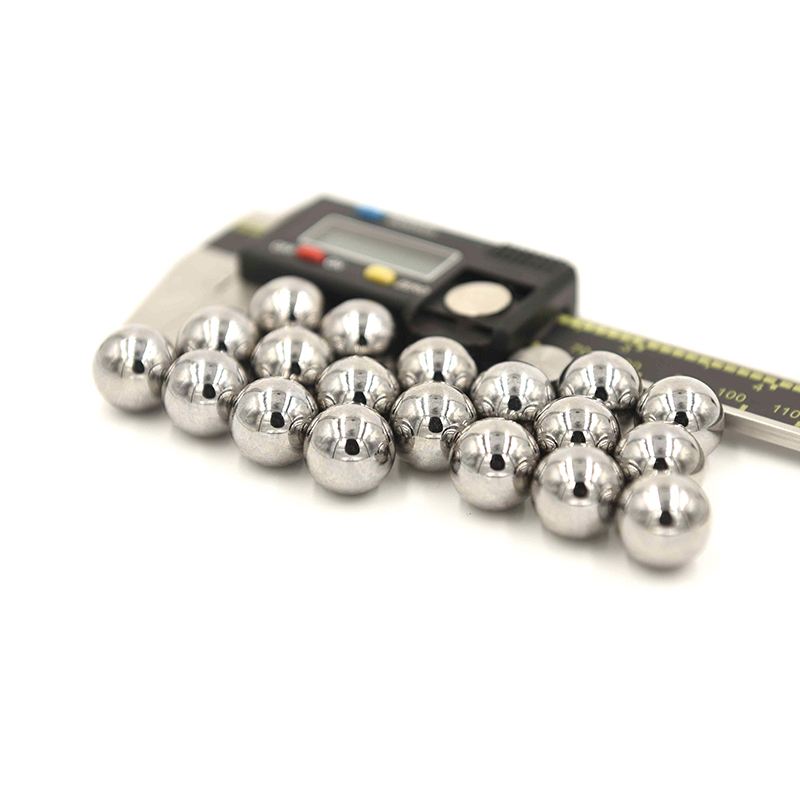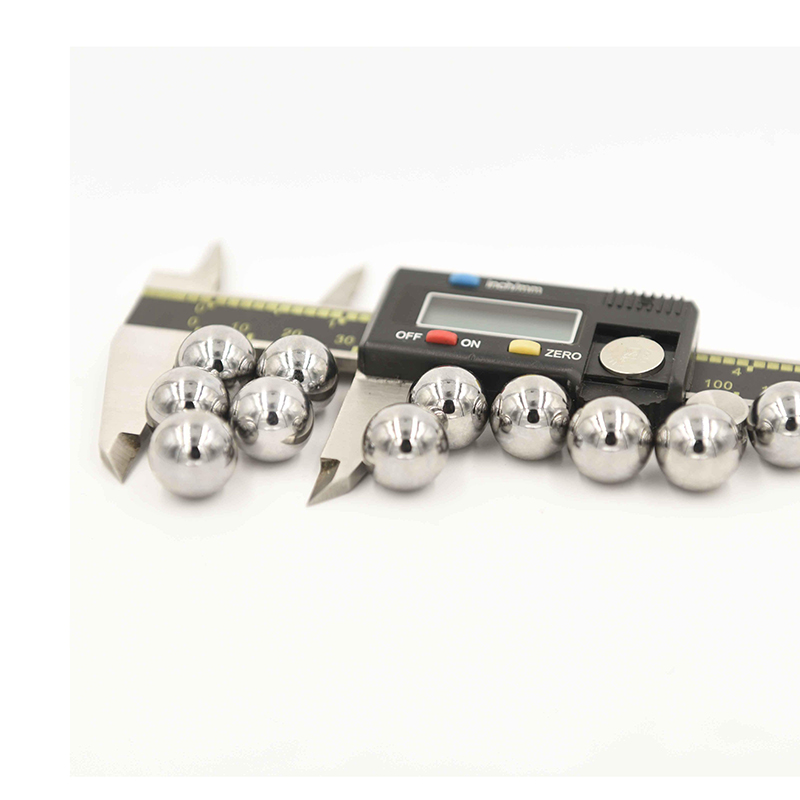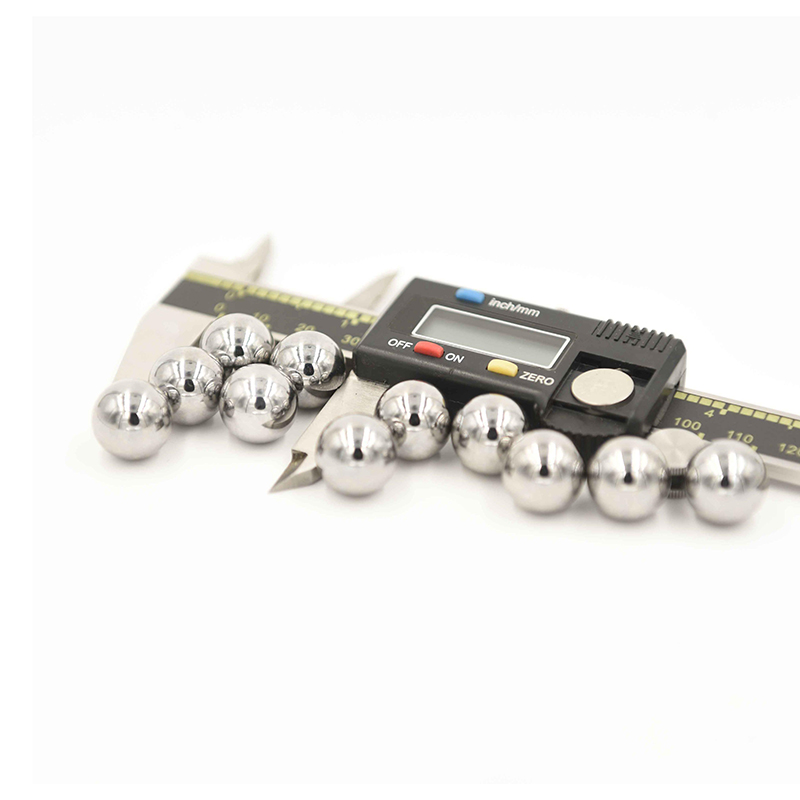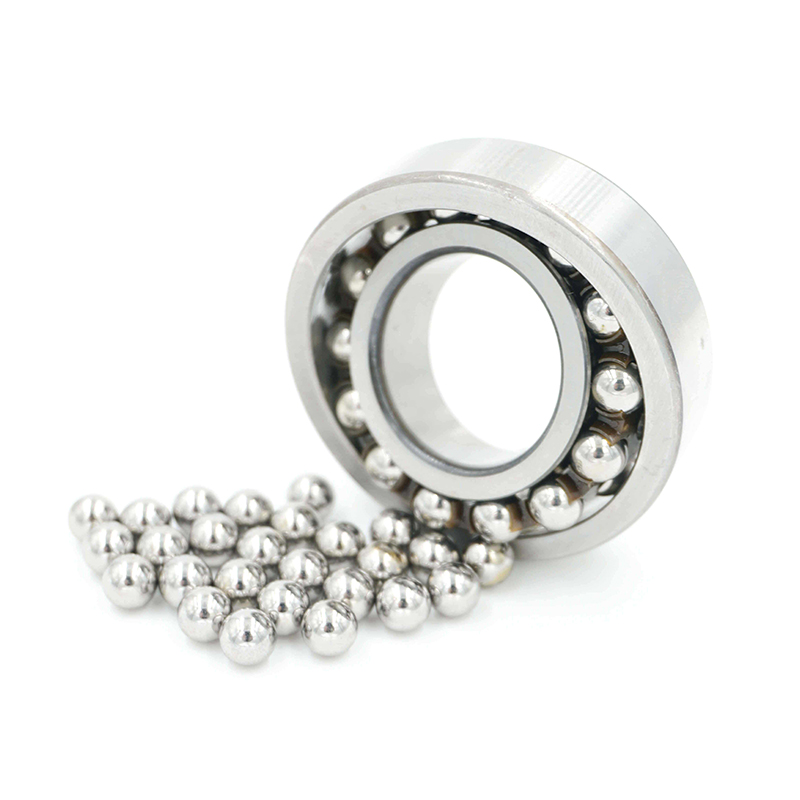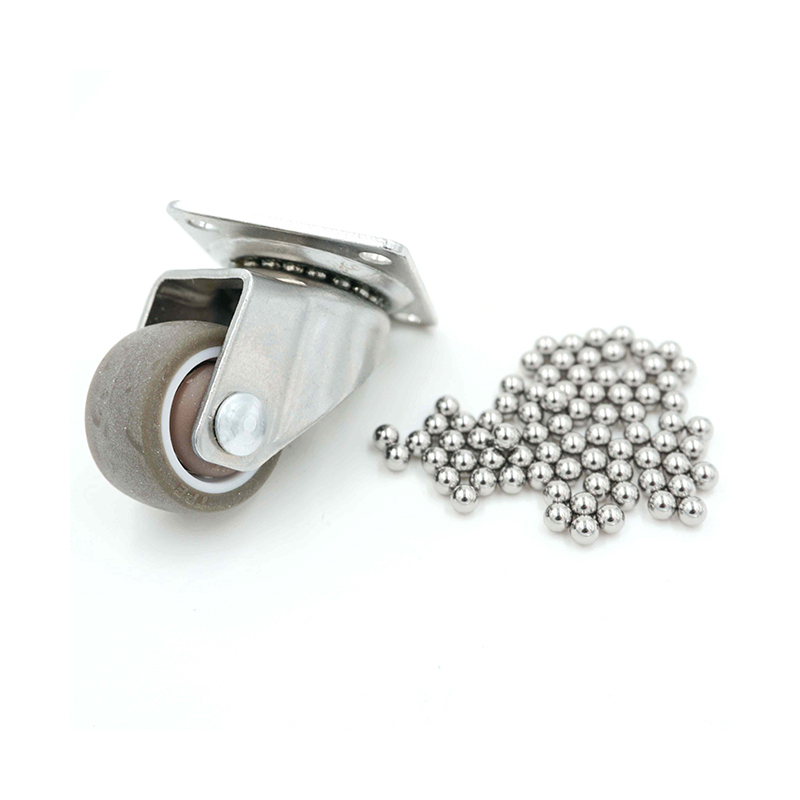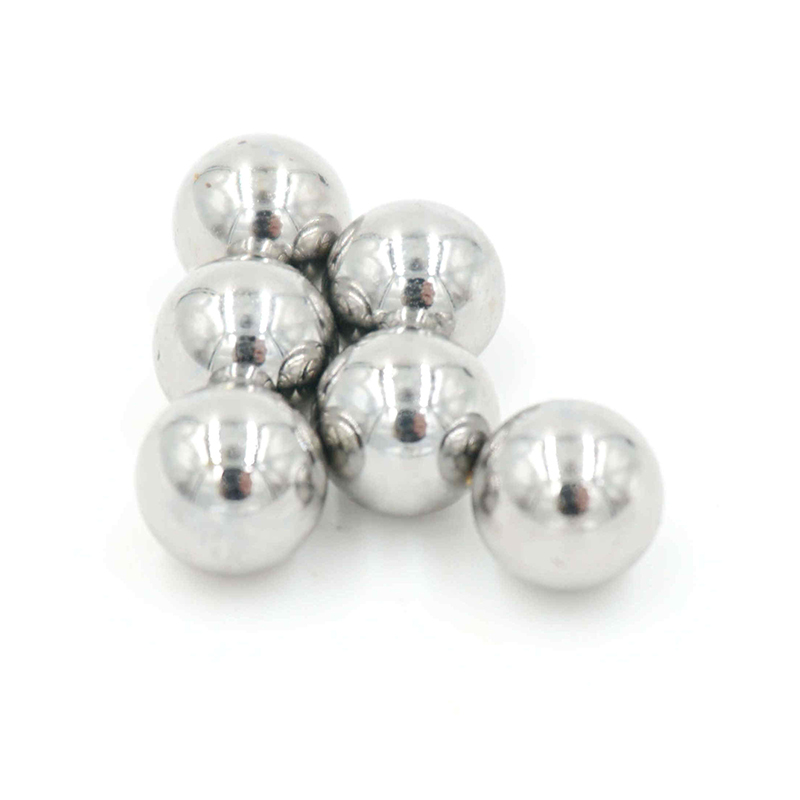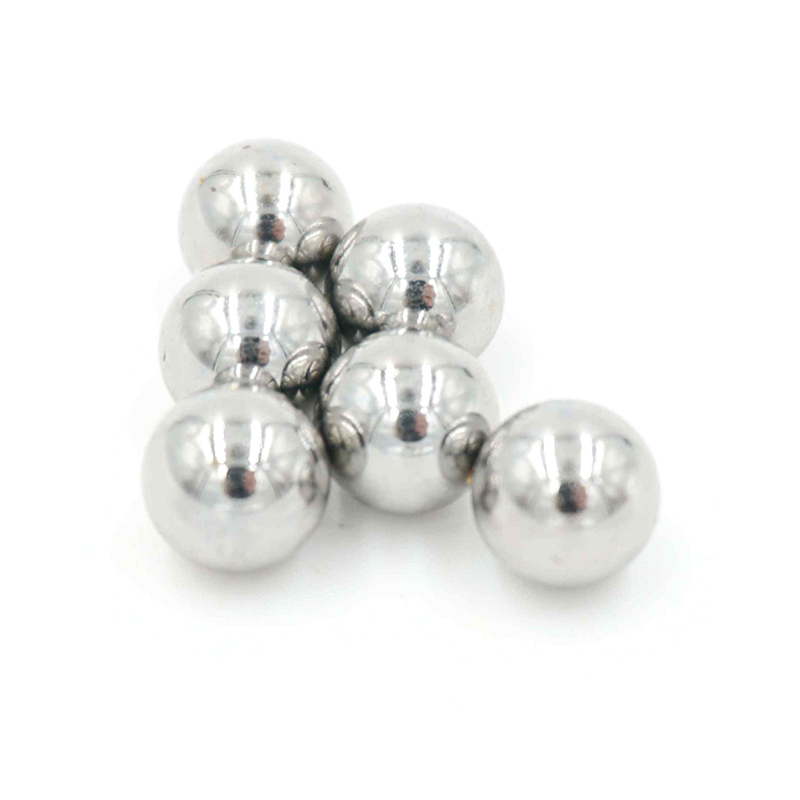316L stainless steel balls high quality precision
316L stainless steel balls are similar to the 316/302/304 stainless Steel ball, it has higher resistance to corrosion than 316, in the presence of chlorine ions too. Suitable for welding. This material is austenitic, totally magnetic and unhardened.
Specification
|
316L stainless steel balls |
|
|
Diameters |
2.0mm - 55.0mm |
|
Grade |
G100-G1000 |
|
Application |
pumps and valves, aerosol and dispenser sprayers, paper, chemical, textile industry. Applications in photographic devices, medical instruments, jewels. |
Hardness
|
316L stainless steel balls |
|||
|
According to DIN 5401:2002-08 |
According to ANSI/ABMA Std. 10A-2001 |
||
|
over |
up to |
|
|
|
all |
all |
27/39 HRC |
25/39 HRC. |
Equivalence Of Material
|
316L stainless steel balls |
|
|
AISI/ASTM(USA) |
316L |
|
VDEh (GER) |
1.4404 |
|
JIS (JAP) |
SUS316L |
|
BS (UK) |
316 S 11 |
|
NF (France) |
Z6CND17-11-02 |
|
ГОСТ(Russia) |
03KH16N14M2 |
|
GB (China) |
0Cr19Ni12Mo2 |
Chemical Composition
|
316L stainless steel balls |
|
|
C |
≤0.03% |
|
Si |
≤1.00% |
|
Mn |
≤2.00% |
|
P |
≤0.045% |
|
S |
≤0.03% |
|
Cr |
16.50% - 18.50% |
|
Mo |
2.00% - 2.50% |
|
Ni |
10.00% - 13.00% |
|
N |
≤0.11% |
Our Advantage
● We have been engaged in steel ball production for more than 26 years;
● We offer a great variety of sizes ranged from 3.175mm to 38.1mm. Non-standard sizes and gauges can be manufactured under special request (such as 5.1mm, 5.15mm, 5.2mm, 5.3mm 5.4mm for seat track; 14.0mm for cam shaft and CV joint, etc.);
● We have a wide stock availability. Most of the standard sizes (3.175mm~38.1mm) and gauges (-8~+8) are available, which can be delivered immediately;
● Each batch of balls is inspected by sophisticated machines: roundness tester, roughness tester, metallographic analysis microscope, hardness tester (HRC and HV) to guarantee the quality.
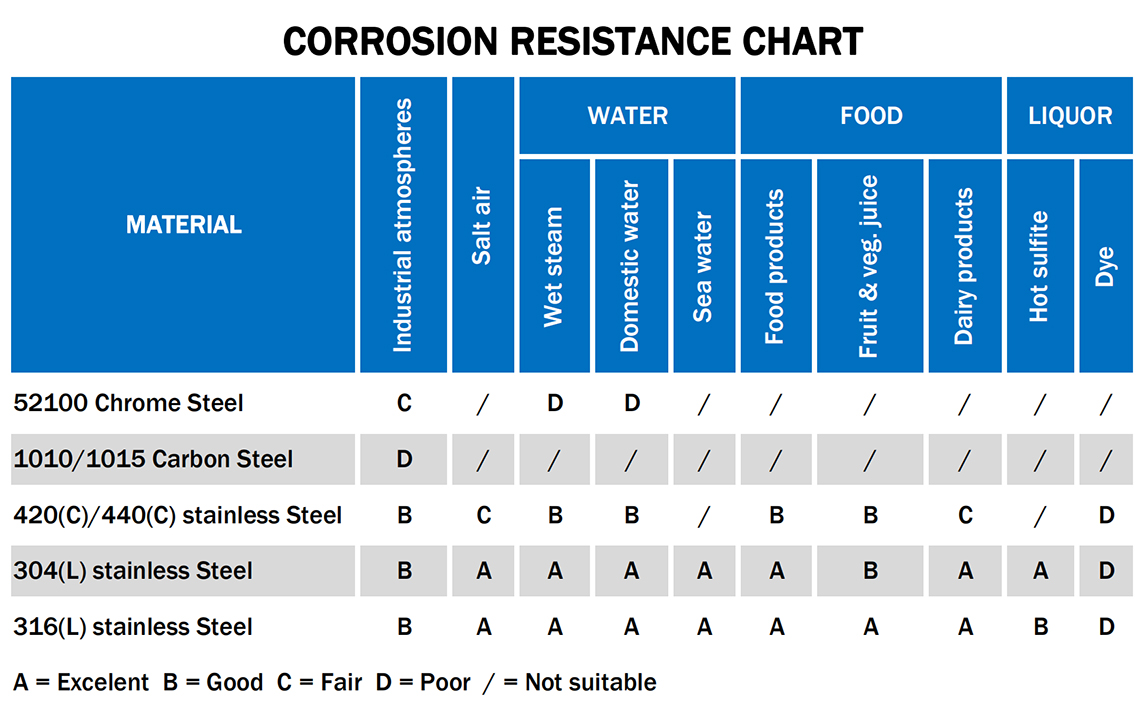
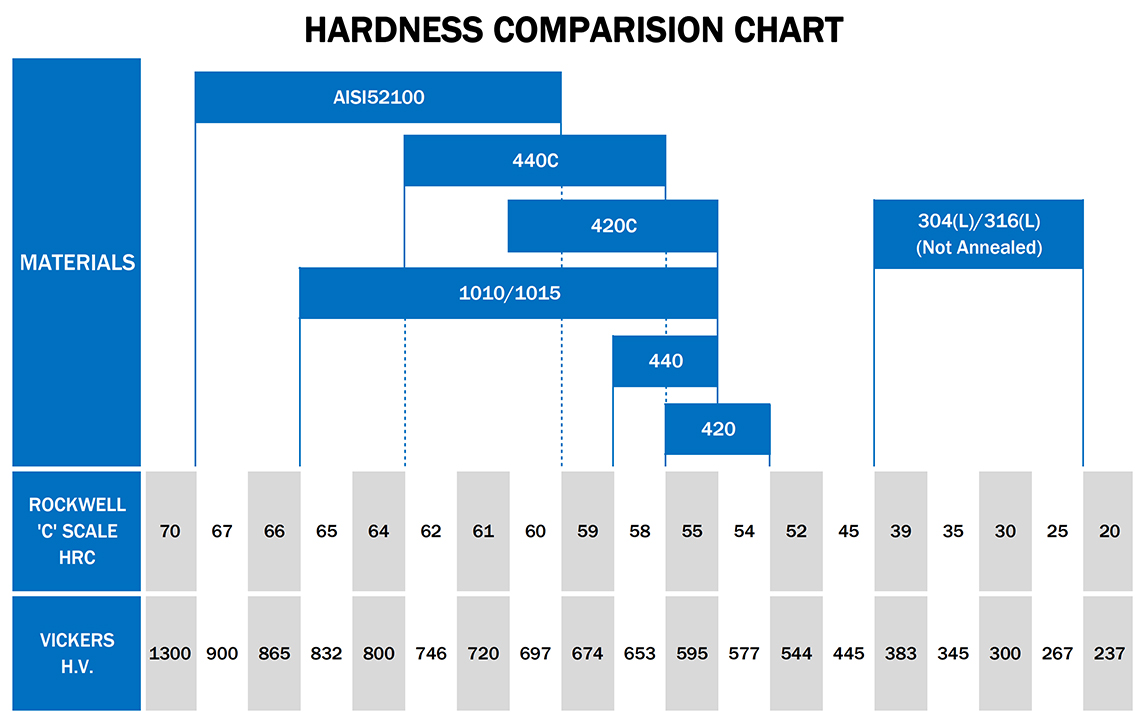
FAQ
Q: How do I choose the appropriate stainless steel brand (304(L)/316(L)/420(C)/440(C))? What are the main differences between 300 and 400 series stainless steel balls?
A: To choose the proper steel brand for stainless steel balls, we should get to know well the properties of each brand and the application of the balls. The most common used stainless steel balls can be divided simply in two groups: 300 series and 400 series.
300 series “austenitic” stainless steel balls contain more chromium and nickel elements and are theoretically non-magnetic (actually are very low-magnetic. Totally non-magnetic require additionally heat treated.). Normally they are produced without the heat treatment process. They have better corrosion resistance than 400 series (in fact, the highest corrosion resistance of the stainless group. Although 300 series balls are all quite resistant, however 316 and 304 balls show different resistance to some substance. For more details, please refer to pages of different stainless steel balls) . They are less brittle, so can be applied also for sealing use. 400 series stainless steel balls contain more carbon, which makes it magnetic and more hardness. They can be easily heat treated like chrome steel balls or carbon steel balls to increase hardness. 400 series stainless steel balls are commonly used for applications that demand water-resistance, strength, hardness and wear resistance.
Q: What standards do you adhere to for manufacturing?
A: Our products are in compliance with the following standards industrial for steel balls:
● ISO 3290 (INTERNATIONAL)
● DIN 5401 (GER)
● AISI/ AFBMA (USA)
● JIS B1501 (JAP)
● GB/T308 (CHN)
Q: What kind of certificates do you achieve?
A: We own ISO9001:2008 management system certification and IATF16949: 2016 automotive industry quality management system certification.
Q: How is your quality assurance?
A: All produced balls are 100% sorted by the sorting bar and checked by the photoelectric surface defect detector. Before packaging samples balls from the lot are to send for final inspection to check for the roughness, roundness, hardness, variation, crush load and vibration in compliance with the standard. If all requirements are met, a inspection report will be made for the customer. Our sophisticated laboratory is equipped with high precision machines and equipment: Rockwell hardness tester, Vickers hardness tester, crushing load machine, roughness meter, roundness meter, diameter comparator, metallographic microscope, vibration measuring instrument, etc..
Why Choose Us
All the produced steel balls are 100% sorted by the roller bar and 100% of the photoelectric surface defect detector to ensure the quality.
The company has a complete set of sophisticated inspection instruments: Rockwell hardness tester, Vickers hardness tester, crushing load machine, roughness meter, roundness meter, diameter comparator, metallographic microscope, vibration detector.
Products categories
-

Phone
-

E-mail
-

Whatsapp
-

Skype
-

Top

